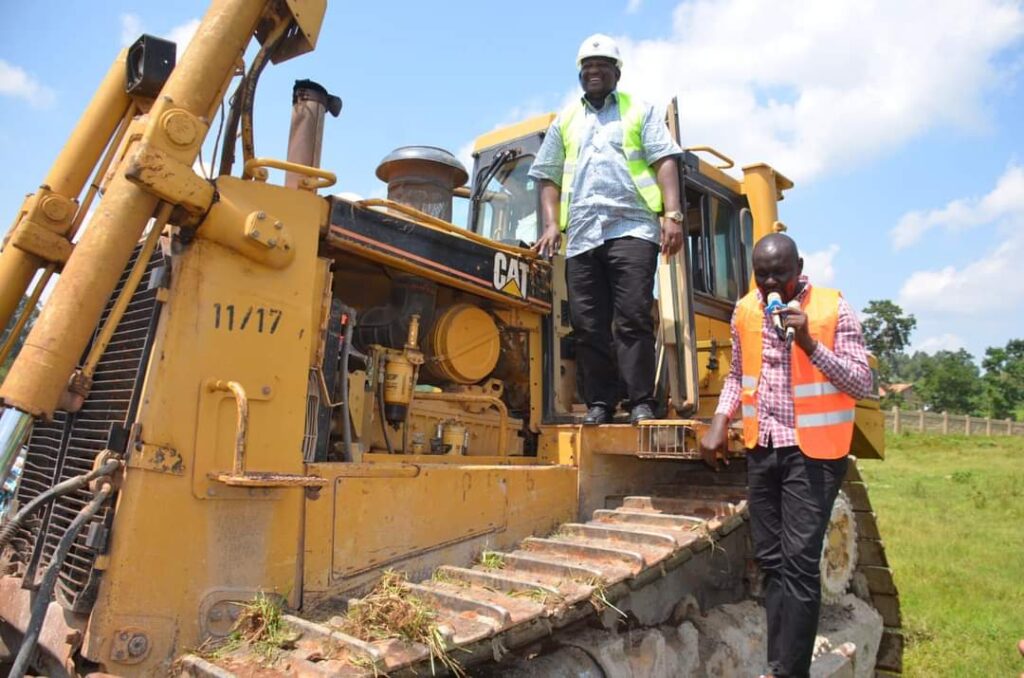By Alloys Musyoka
The government has initiated a KSh 5.8 billion gold refinery project,being the first modern gold refinery in Lidambitsa area of Ikolomani, Kakamega County.
Cabinet Secretary for Mining, Blue Economy, and Maritime Affairs, Salim Mvurya said the Refinery will serve as transformative venture for Kenya’s gold sector.
Mvurya emphasized that value-addition facilities like this refinery are crucial for accelerating growth and fostering innovation in the mining industry, thus promoting socio-economic development for artisanal gold miners nationwide.
He said the establishment of gold refinery aligns with the kenya kwanza governments’ vision and commitment to creating value addition centers that increase the value and prices of the minerals.
“Value addition plays a crucial role in ensuring economic sustainability by enhancing the economic potential of raw materials, increasing employment opportunities, fostering innovation, and promoting competitiveness,” he added.
Mvurya said that the Ruto government envision an Increased GDP; Transforming raw materials into finished goods or higher-value products boosts the Gross Domestic Product (GDP).
Research indicates the presence of 970 mineral deposits across Kenya’s 47 counties according to Mvurya.
The refinery is expected to catalyze the country’s economic growth with Mvurya emphasizing that local residents should be prioritized for employment and tender opportunities.
“We are creating new employment frontiers: Value addition processes, such as manufacturing, processing, and services, will create diverse job opportunities across different sectors,” he reiterated.
On enhanced Skill Development he said that the mining jobs require a range of skills, contributing to workforce development and education and therefore part of the agreement with investors is to empower locals with skills and new technologies.
Diversification of the sector, he said that value addition encourages the development of various industries, such as cottage industries, thus reducing dependence on a single sector and enhancing economic resilience.
He noted that value addition is vital for creating a more robust, diversified, and resilient economy, fostering sustainable development, and improving overall economic well-being.
Formation of a community development agreement committees he said will ensure locals receive 1 percent of the refinery’s benefits.
Additionally, 20 percent of royalties will go to the county and 10 percent to the local community.
Elijah Mwangi, the Principal Secretary for the State Department for Mining, underscored that the drive to establish mineral value addition centers is central to the proposed reforms in Kenya’s mining sector.
He stressed the importance of ensuring that artisanal miners, who occupy the lowest levels of the mining ecosystem, receive fair compensation through increased profits from processed gold.
Kenya currently lacks a refinery, resulting in the loss of all mined gold.


